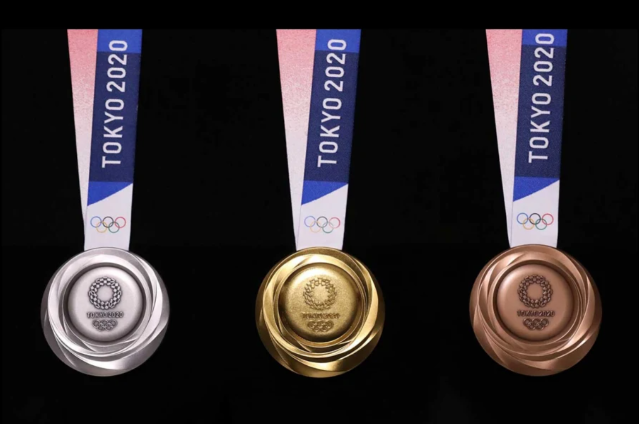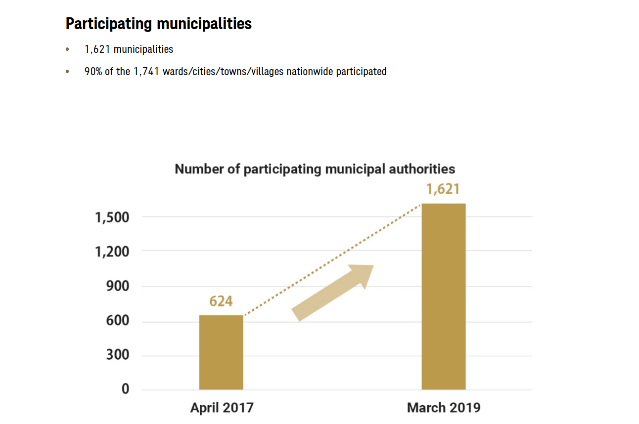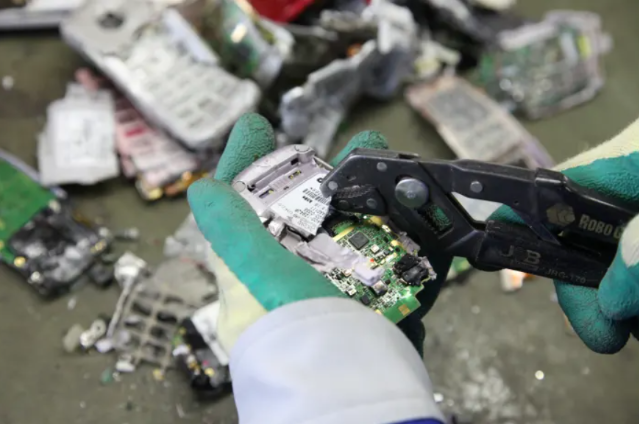
The Olympics is one of the world's greatest sports events, and it is presently going on in Tokyo. Winning an Olympic event is considered as of great value and recognition. Currently, several players are taking the podium, and owning their Olympic medals with pride and cheer. Yet, one more pleasant thing about this event is that recycled Olympic medals are being used for the Tokyo Games 2020. A project which was originated in Japan has reused old electronic devices such as smartphones and laptops to produce the Olympic medals that are being awarded at the Tokyo Games.
Japan nearly took about 2 years to assemble enough recycled stock to generate around 5,000 bronze, silver, and gold medals for the Tokyo Olympics 2020. Up to 90% of Japanese cities, towns, and village areas cooperated by setting up contribution pick-up sites where thousands of Japanese citizens donated their old electronic devices like phones and laptops.

Assembling the used devices was just the initial move, and the people of Japan actively participated in it. Tokyo 2020 spokesperson Hitomi Kamizawa informed DW, “The campaign called on the public to donate obsolete electronic devices for the project. We are grateful for everyone’s cooperation”. Following a method of dismantling, selecting, and refining by contractors the recovered stock was then molded into some design concepts. A pattern by a Japanese man Junichi Kawnishi knocked out 400 other approaches in a contest held by Tokyo Olympics team.
Although recycling works like these usually seem on its own, the medal project had to involve the federal government, thousands of municipalities, corporations, schools, and other social associations. When this recycling project was launched in April 2017, there were simply arout 600 municipalities on board. Yet by the end of the project in March 2019, the figure had surged to more than 1600. There was an influential public relations drive, and collection points were set up to make it more manageable for the people to participate.

Source: olympics.com
The recycling campaign contributed nearly 80 tons of small electronic devices such as old phones and laptops. Renet Japan Group was one of the major companies which were involved, whose trading philosophy spins around sustainability. This company acquired a waste management movement for the medal project with the collaboration of multiple stakeholders, from the Japanese government to regional communities.
E-waste has been a large problem in the modern world. According to the United Nations report, the Global e-waste volumes have grown by 21% between 2004 and 2019. And the world has discarded 53.6 million tons of e-waste in 2019. Barely 17.4% of e-waste discarded in 2019 was recycled. E-waste has grew by more than a fifth in the past five years amid growing demand for electronic devices, mostly with short life cycles and few options for repair. Less than a fifth of the scrap ends up being correctly collected and recycled, posing severe environmental and health risks.

The recycling project by Japan was obtained on the fact that billions worth of precious metals such as gold and silver which are used in electronic devices get discarded each year globally due to people simply dumping or burning their gadgets instead of ensuring they are properly collected and recycled.
Japan has become the first country to make Olympic medals out of recycled material. Despite this, the concept of using recycling material is not so unique, and in the Rio Olympics 2016, around 30% of the silver and gold medals were obtained from recycled materials such as car parts and mirror surfaces. Presently, the Tokyo Olympics 2020 has set a bar pretty high for forthcoming Olympic events to make it more eco-friendly. And when it comes to the environmental aspect, it is quite crucial to continue to establish a more sustainable competition.
____________________________________________________________
Reference:
- www.unu.edu
- www.nytimes.com
- www.olympics.com
